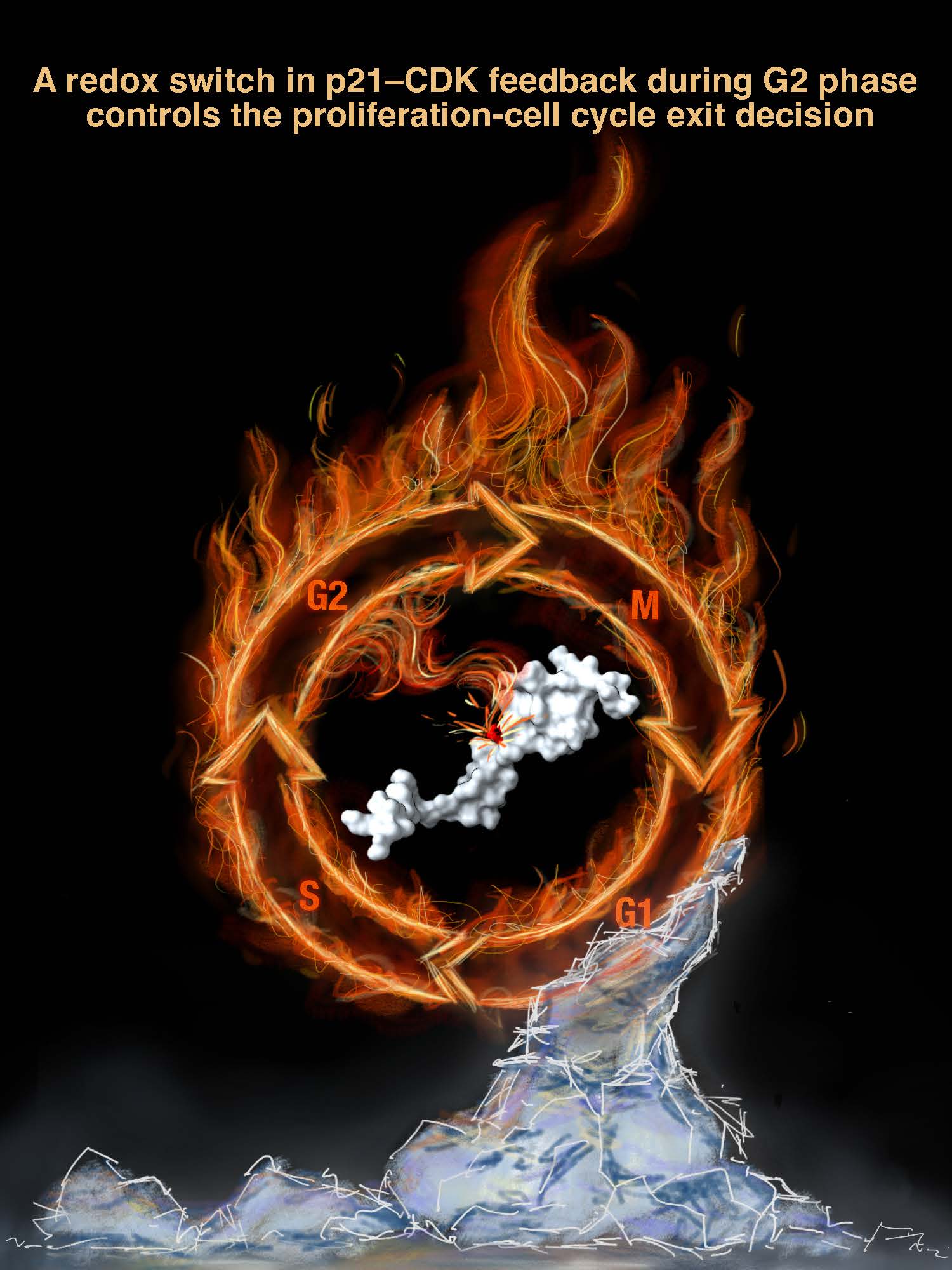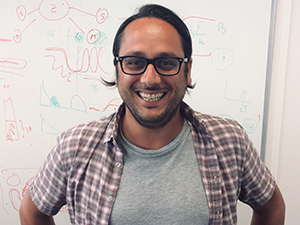Researchers have discovered a tiny chemical switch inside our cells that helps control whether they keep dividing or stop for good – a finding that could influence future cancer therapies and deepen our understanding of ageing.
The study, initially launched at the Biotechnology Center (BIOTEC) of TUD Dresden University of Technology in Germany and later led and conducted by researchers at The Institute of Cancer Research, London, found that a subtle chemical change to a crucial protein – p21 – acts as a master regulator of cell division. This switch determines whether cells continue to grow or enter a state known as senescence, where they stop dividing permanently.
Senescence plays a vital role in preventing damaged cells from becoming cancerous, but if not tightly regulated, it can also contribute to ageing and treatment resistance. The study, published in Molecular Cell, shows how cells use reactive oxygen – a natural byproduct of their own metabolism – to control this decision at the molecular level.
Oxidation through the cell cycle
To explore how this molecular decision is made, the research team used a technique known as redox proteomics, which maps how reactive oxygen species (ROS) – highly reactive molecules inside cells to which our bodies are constantly exposed – chemically modify proteins. Although associated with cell damage, these molecules also act as important messengers, helping regulate cellular processes like stress response and cell division. The team did this through a reaction called S-sulfenylation, which alters specific building blocks in proteins, known as cysteine residues, and changes how the proteins behave.
Using redox proteomics, the researchers labelled and analysed more than 1,700 individual oxidation sites across various proteins, carefully tracking their changes throughout the cell cycle. In doing so, they created one of the most detailed maps of redox activity during cell division to date.
They focused on p21 after noticing that its oxidation peaked just before the cells divided. Using gene editing, they engineered cells with a C41S mutation – a version of p21 that cannot be oxidised. These cells accumulated more stable p21 proteins, passed higher levels to daughter cells and were more likely to enter senescence after stress such as radiotherapy. Over time, they were outcompeted by normal cells – reinforcing the role of the redox switch in regulating cell growth.
Chemical changes with lasting consequences
This switch acts through a key protein called p21, which prevents the cell cycle from progressing forward unchecked. The new study found that the oxidation of a single site on p21 – a cysteine amino acid at position 41 (C41) – is key to determining how the protein behaves and interacts with other proteins. In this context, oxidation is a tiny chemical modification – effectively a chemical switch – that changes how proteins behave.
When this site is oxidised, which occurs just before a cell divides, p21 is broken down, allowing cells to keep reproducing. But when the site is not oxidised – due to mutation or lack of reactive oxygen – p21 becomes more stable and cells are more likely to enter senescence.
This oxidation acts as a chemical switch – part of a broader redox mechanism where oxygen-based chemical changes help control protein function – that helps steer cells towards growth or permanent arrest – a decision that is critical in cancer biology and treatment response.
The redox switch affecting cell division
To confirm that this was not just a result of genetic mutation, the team used targeted antioxidant enzymes that held p21 in a reduced state without altering its structure. This also led to higher p21 levels and increased senescence after stress – confirming that redox regulation alone could steer cell fate.
A potential target for future therapies
While these findings are still early-stage, they reveal a powerful mechanism that could be relevant in a range of diseases – especially cancer. Manipulating the redox state of p21 could offer a new entry point for therapies, particularly treatment-resistant cells that are difficult to eliminate with conventional approaches.
The researchers suggest this redox control may be important in improving responses to treatments like radiotherapy or drugs that lead to an increase in p21 levels.
Senior author Dr Jörg Mansfeld, Group Leader of the Post-translational Modifications and Cell Proliferation Group in the Division of Cell and Molecular Biology at The Institute of Cancer Research (ICR), said: “It’s remarkable that such a small chemical change – just one oxidised cysteine – can have such a profound impact on how cells behave. It shows how finely tuned our cell cycle controls really are.”
A shift in how we see cell stress
This research adds to growing evidence that redox regulation – once thought of as a side effect of cell stress – is actually a central part of how cells control key processes like growth, repair and ageing. The study complements earlier findings from the same team showing that CDK2, a key cell cycle protein inhibited by p21, is also directly regulated by oxidation – further illustrating how redox signalling can finely tune the balance between cell growth and arrest.
Dr Julia Vorhauser, co-lead author and Postdoctoral Training Fellow in the Post-translational Modifications and Cell Proliferation Group, said: “By understanding how p21’s oxidation state controls its stability and interactions, we’ve uncovered a completely new layer of regulation in the cell cycle. This could be a useful target in cancer – especially in tumours where p21 is present but misregulated.”
The team is now looking at how this redox switch behaves in different types of cancer and trying to determine whether it could be exploited to design better combination treatments. While much work remains, the findings highlight a new way of thinking about how cell growth is controlled – one that could eventually be harnessed to improve cancer treatment.

Image: Artwork illustrating the cell cycle (the fiery ring) and the role of the protein p21 (white structure). A tiny chemical switch on p21 helps decide whether cells continue to divide - or enter senescence, a ‘frozen’ state where they stop for good (represented by the ice below). Artwork designed and provided by postdoc Hinyuk Lai.
.tmb-propic-md.jpg?Culture=en&sfvrsn=c25d2b2f_9)
 .
.
